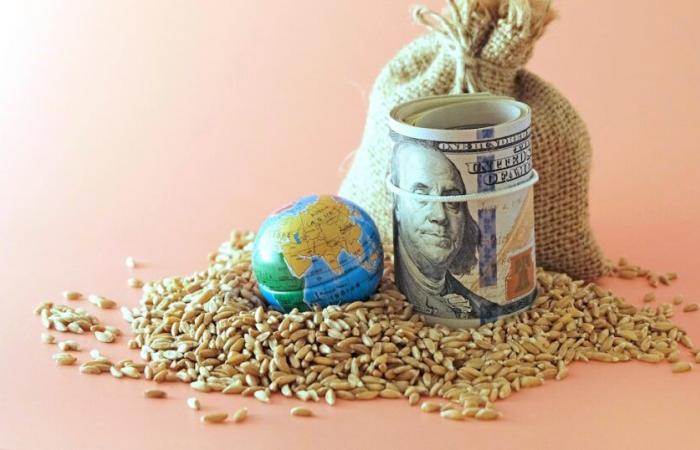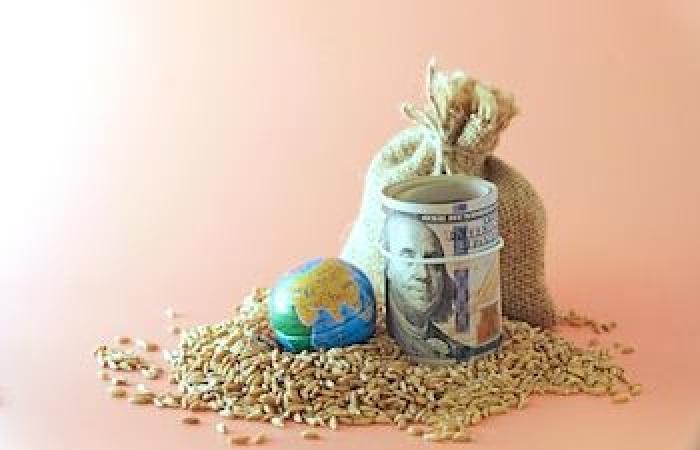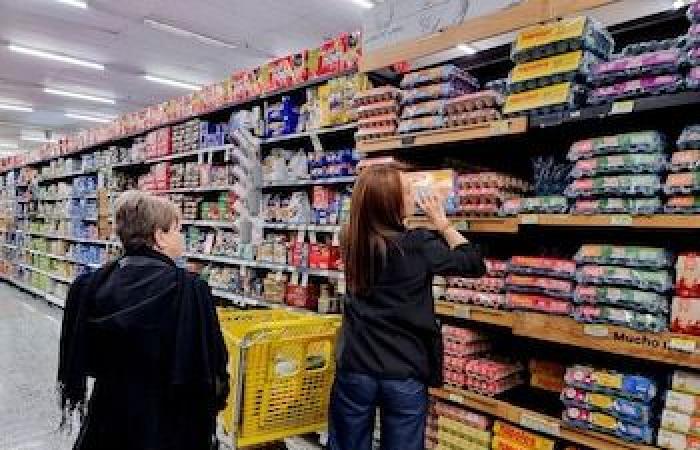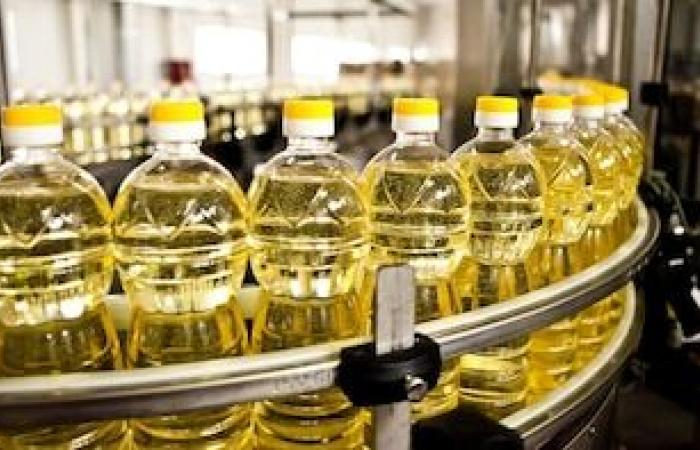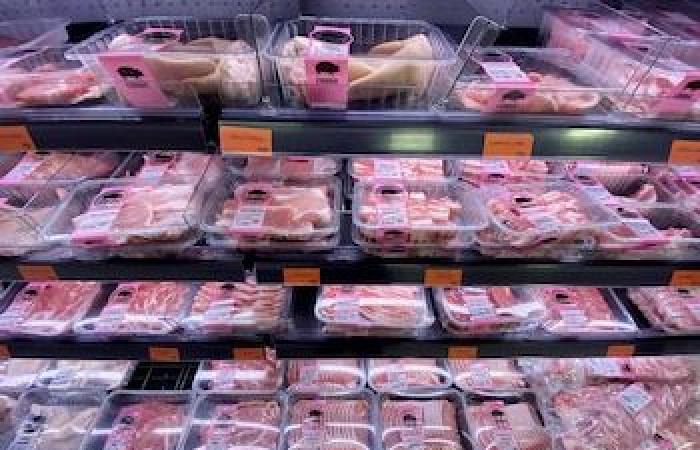Amid the global commercial tension and greater demand because of the growing uncertainty, the prices of the food At the global level, 1% increased at a level 7.6% higher than the same month of 2024.
In Argentina, a net exporter and one of the main food producers, the rise would have slowed down on March but even inflation in the field remains high.
At the International level, according to the United Nations Food and Agriculture Organization (FAO), there was a slight increase with respect to the previous month, promoted by rises in cereal values, dairy products and meats, while sugar prices and vegetable oils showed falls.
A fact to highlight is that despite the progress of the general index last month, 31.9 points below the maximum reached in March 2022 is still maintained.
Inside, the FAO cereal price index 1.3 points were placed above March, but 0.6 points below the level registered one year earlier.
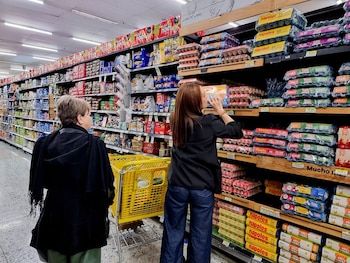
“The monthly increase obeyed the prices of all the main cereals. The world prices of wheat rose slightly, sustained by the greatest shortage of exportable supplies in the Russian Federation, the sustained rhythm of the exports of some of the main export countries and exchange fluctuations linked to the weakening of the US dollar, in particular against the euro. Commercial and macroeconomic uncertainty limited the climb, ”explains the report.
International corn prices also increased, to a large extent as a consequence of the seasonal reduction of reserves in the US and exchange rate fluctuations.
“The adjustments introduced to the import tariff policies in the US – including the exemption of Mexico, the main importer of American corn, and the 90 -day break in import tariffs greater than 10 % of several other commercial associates – contributed even more to the rise pressure in prices,” said the FAO.
As for other secondary cereals, the world prices of sorghum and barley also increased.
Meanwhile, the Vegetable oil price index 2.3% were reduced in April, although 20.7% remained above the level of a year ago.
The descent was mainly due to the prices of palm oil, which quite compensated for the increase in the quotes of soy and rapeseed oils, while the world’s prices of sunflower oil remained practically stable.
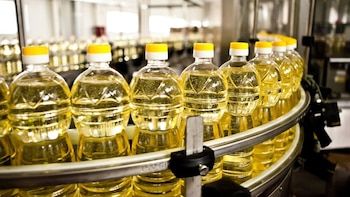
“The world prices of soybean and rapesee oils continued to increase, as a consequence, respectively, the persistent firmness of world import demand and the greatest shortage of supplies as the end of the 2024/25 campaign is approaching,” the report said.
On the other hand, international touring oil prices fluctuated within a narrow margin during April, but remained well above the levels of a year ago, in a context of reduction of the offer from the Black Sea region.
The advance of these products favors Argentina since It is the world producer of sunflower oil and first exporter of soybean oil, according to the latest report of the Cordoba Cereal Bag (BCCBA).
On the other hand, meat prices increased 3.2% and 4.3% in relation to a year ago.
International meat contributions rose in all categories, with pork prices being the most significant increase.
The latter rises was due to the increase in quotes in the European Union, due to a greater world import demand, after the condition of free zone of the Afitase fever disease in Germany and the importing countries were restored, the importing countries lifted the related restrictions, which was also reinforced by the increase in seasonal demand associated with Holy Week.
Bovine meat prices also rose, especially in Australia and Brazil, given the constant demand for imports and limited availability worldwide.
Likewise, sheep meat prices recorded a sudden increase, following the strong purchase interest in the main markets.

On the other hand, the prices of poultry meat experienced a moderate increase, especially in Brazil, where the solidity of external demand and the slowdown in the elaboration processes related to the festivities gave rise to a greater shortage of exportable supplies and added a bullish pressure on prices.
In Argentina, there was a strong acceleration in the meats during February and March, while last month, according to the LCG consultancy, they advanced 5,4%which will put pressure on the food and drink division of the consumer price index, given the weight it has in the weighting. Among the factors that motivated the rise are a lower task and preventive increases due to the length of the stocks.
He Dairy Product Price Index De la FAO reached 152.1 points, with a monthly rise of 2.4% and an interannual rise of 22.9%. Butter prices marked a historical record, with an increase of 2.9%, driven by lower availability in Europe and the high demand for dairy fat.
Also, the prices of powdered milks –1.6% the skimmed and 2.9% the entire – due to the firm domestic demand and the transfer of the export interest to Oceania, where production fell. Cheese recorded a 2.3% increase due to the shortage of supply in Oceania and a solid external demand.
He sugar price index 3.5% fell, which represents the second consecutive monthly decrease and places the index 10.9% below its level of April 2024.
“The fall in world prices of sugar was largely due to the concern for the uncertainty of world economic perspectives and their possible effects on the demand for the sectors of elaboration of drinks and food, which represent most of the world consumption of sugar,” said FAO.
“The fact that the production of sugar in Brazil was greater than expected in the second half of March accentuated the downward pressure. In addition, the depreciation of the Brazilian real against the US dollar and the decrease in crude oil prices contributed to the decrease in global sugar prices,” he added.
In March, the food and beverage item presented a 5.9%rise, being the one with the highest incidence in the CPI. The impulse mainly came from the increases in vegetables, tubers and legumes and in meats and derivatives.
For April, private estimates are somewhat lower but still high. According to C&T Economic Advisors, the food and beverage set jumped 2.2% in the month.
For its part, the consultant Orlando Ferreres and associates recorded inflation in the area of 3.6 percent.
It is not less than highlighting that, according to LCG survey, food prices did not increase in the fourth week of April and 0.4% fell in the fifth. Thus, the average of the last 4 weeks retreated 2.8%.
The most important increases in the last week of the month were given in bakeries, cereals and pasta (3.2%); Sugar, honey, sweets and cocoa (2.5%) and oils (1.2%). On the contrary, drinks and infusions went down to consume at home, dairy products and eggs, vegetables, meats and meals ready to wear.

